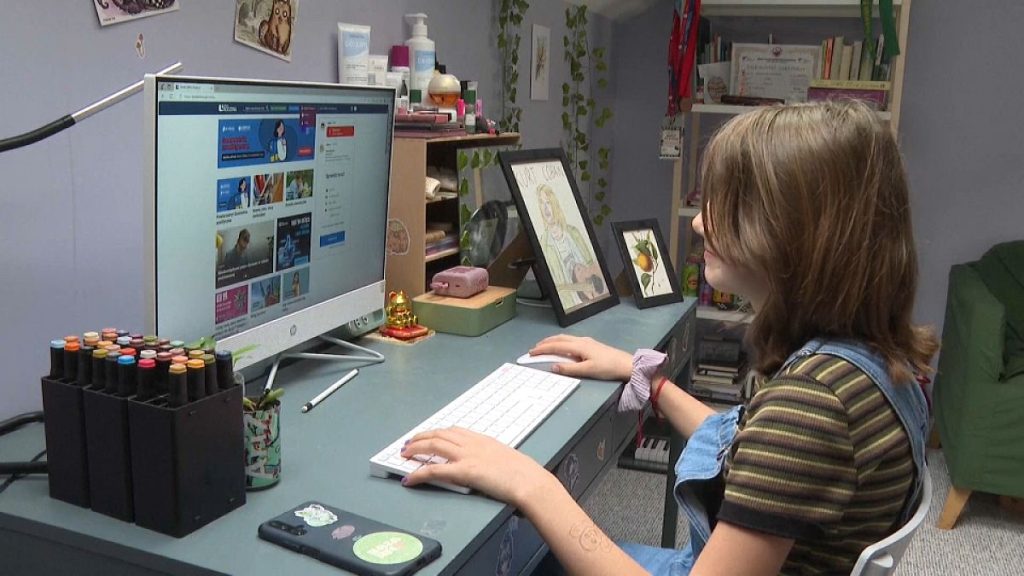The Polish government has recently implemented strict limits on homework for students in an effort to modernize the education system. Under the new rules, students in the first to third grades will no longer be required to do homework, while students in grades four to eight have the option to do homework that does not count towards their grade. While some students have welcomed the change, not everyone is convinced of its benefits. The head of the Polish Teachers’ Union, Sławomir Broniarz, believes that the new rules were imposed without proper consultation with educators and could potentially widen educational gaps between students with strong support at home and those without. This decision is just one of many controversial changes made to the Polish education system in recent years, leaving parents and teachers feeling confused and discouraged.
Despite the positive reception from some students, there are concerns that the new rules could have unintended consequences. Broniarz argues that the removal of homework could create disparities between students based on their home environments and support systems. While some students may benefit from the reduced homework load, others may struggle to keep up with their peers without the additional practice and reinforcement that homework provides. This could potentially widen the gap between students who have strong support at home and those who do not, leading to inequalities in educational outcomes. As a result, the decision to limit homework has sparked debate and raised questions about the impact it may have on student performance and achievement in the long run.
The Polish education system has undergone several controversial changes in recent years, with each new government introducing its own set of reforms. This has left parents and teachers feeling confused and uncertain about the future of education in Poland. The rapid pace of change has also raised concerns about the quality and effectiveness of the reforms, as many of them have been implemented without adequate consultation or consideration of the potential consequences. As a result, there is a sense of unease and skepticism among educators and parents about the direction in which the education system is heading. The decision to limit homework is just one example of the ongoing changes that have created uncertainty and controversy within the Polish education system.
One of the key concerns raised about the decision to limit homework is the potential impact it may have on students’ academic performance and learning outcomes. While some students may benefit from less homework, others may struggle to keep up with their peers without the additional practice and reinforcement that homework provides. This could lead to disparities in educational outcomes and widen the gap between students who have strong support at home and those who do not. As a result, there is a fear that the decision to limit homework could have unintended consequences and create inequalities within the education system. Educators and parents alike are watching closely to see how the changes will affect student learning and achievement in the long term.
Despite the concerns raised about the decision to limit homework, some students have welcomed the change. For many students, homework has been a source of stress and frustration, and they feel relieved to have it removed from their daily routine. Students like 11-year-old Ola are happy to be free from the burden of homework and have more time to relax and pursue other interests. However, for others like third grader Julian, the absence of homework is seen as both a positive and negative change. While he acknowledges that not having homework is “cool,” he also recognizes that there may be downsides to not having the extra practice and reinforcement that homework provides. Ultimately, the decision to limit homework has sparked a range of reactions among students, with some embracing the change and others expressing mixed feelings about its potential impact on their education.
In conclusion, the decision to limit homework in the Polish education system has sparked debate and raised questions about the potential consequences for students’ learning outcomes. While some students have welcomed the change, others have voiced concerns about the impact it may have on their academic performance and achievement. Educators and parents are watching closely to see how the new rules will affect the education system and whether they will lead to disparities in learning outcomes. As the Polish education system continues to undergo changes and reforms, there is a sense of uncertainty and skepticism among educators and parents about the direction in which education is heading. It remains to be seen how the decision to limit homework will shape the future of education in Poland and whether it will ultimately benefit students in the long run.


